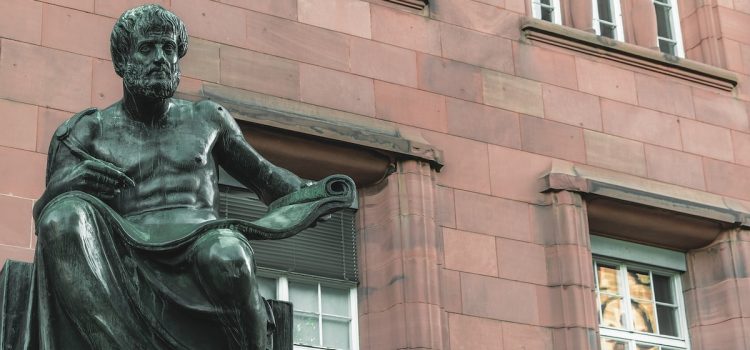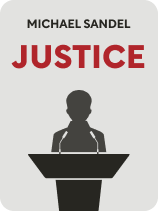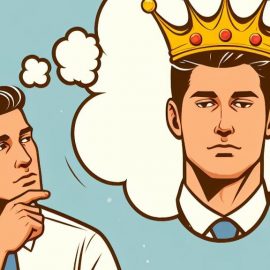

This article is an excerpt from the Shortform book guide to "Justice" by Michael Sandel. Shortform has the world's best summaries and analyses of books you should be reading.
Like this article? Sign up for a free trial here.
What is Aristotle’s philosophy regarding politics and government? What function, in Aristotle’s view, does the government serve?
According to Aristotle’s political theory, the government exists to maximize the virtue of its citizens. Therefore, it cannot and should not separate politics from questions of morality and personal life circumstances.
To understand Aristotle’s argument, we’ll deconstruct it into two themes.
Theme #1: Teleology and Justice
Aristotle has a “teleological” view of the world—in other words, he believes that everything has an end goal or purpose (a telos in ancient Greek). Sandel explains that Aristotle uses this view to explain politics as a whole as well as the relationship between politics and individuals:
1) The telos of politics, according to Aristotle, is to create laws and a society that help people live satisfying and virtuous lives. While liberalism looks to give people the opportunity and freedom to live well and be moral if they so choose, Aristotle believes that there shouldn’t be a choice.
2) But the definition of “living well” varies depending on the person, explains Aristotle—different kinds of people have their own different telos (purposes in life) and require different things to achieve them.
For example, imagine someone who’s directionless and can’t function in society on their own. To Aristotle, this person would have the telos of obedience—for them to flourish and live the best possible life, they’d need direction, supervision, and help from a superior. Aristotle says that in this case, enslaving this person is moral—it helps both the enslaved person and the enslaver. However, if the enslaved person rejected their status or tried to escape, then Aristotle says they should go free, since their rejection shows that they don’t have the telos of being enslaved.
Theme #2: Leaders With Merit
The second crucial part of Aristotle’s political theory that Sandel discusses has to do with merit and “desert” (a philosophical term meaning “being deserving of something”). These are the main guidelines Aristotle uses for distributing social goods like rights, wealth, and political power. He reasons that society should give goods to the people who can use them best—for example, the best tools to the best carpenter, or the most land to the best farmers. Since Aristotle considers politics as the application of virtue, he concludes that the most virtuous people should hold power. This ties in with the telos of politics: Since the goal of politics is to make people live virtuously, it follows that a virtuous person is best suited to this task.
To Aristotle, this all takes place in the context of a community as a whole—the best farmer wouldn’t get the most land just so they could grow their personal wealth. Instead, said farmer would use their skill to grow food for everyone in the community.
(Shortform note: You might be wondering how Aristotle’s system prevents leaders from acting in their own self-interest at the expense of society. For a solution to this problem, we can look to Aristotle’s teacher Plato and his Republic. Much like Aristotle, Plato argues that the wisest and most moral people should rule. To prevent rulers from acting in self-interest, though, Plato says leaders must go through a specific upbringing: The previous generation of moral leaders must raise the most promising children communally—they’ll have no families, no private property, and will undergo extensive scientific and moral education. This, Plato suggests, creates a class of moral rulers who don’t want power or wealth and therefore won’t act in self-interest.)

———End of Preview———
Like what you just read? Read the rest of the world's best book summary and analysis of Michael Sandel's "Justice" at Shortform.
Here's what you'll find in our full Justice summary:
- A philosophical look at the goal of our society and its laws
- What a moral and just government and society look like
- Sandel's suggestions for how to create a more moral world






